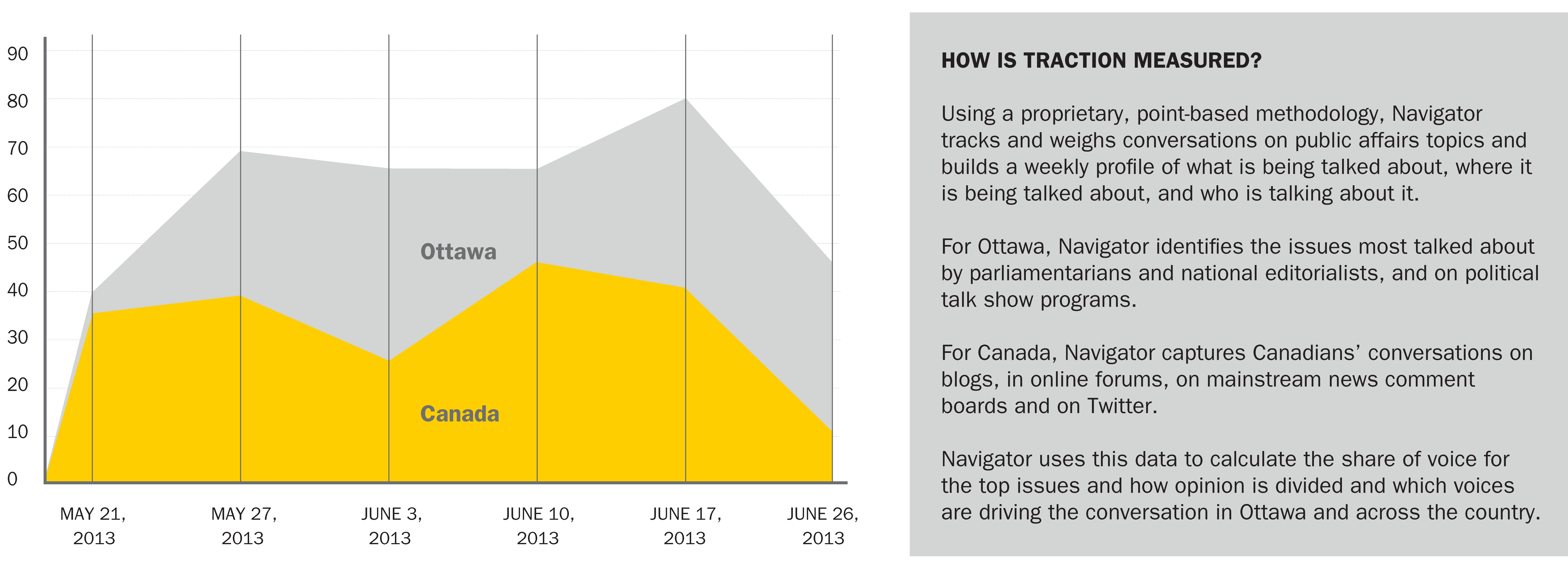- CEOCap
- Jaime Watt’s Debut Bestseller ‘What I Wish I Said’
- Media Training
- The Push Back
- Internship program
- Update Your Profile
- Homepage
- It’s time for a change
- It’s time for a change
- Kio
- Ottawa
- Art at Navigator
- Navigator Limited Ontario Accessibility Policy
- Virtual Retreat 2020 Closing Remarks
- COVID-19 Resources
- Offices
- Navigator Sight: COVID-19 Monitor
- Navigator Sight: COVID-19 Monitor – Archive
- Privacy Policy
- Research Privacy Policy
- Canadian Centre for the Purpose of the Corporation
- Chairman’s desk
- ELXN44
- Media
- Perspectives
- Podcasts
- Subscribe
- Crisis
- Reputation
- Government relations
- Public affairs campaigns
- Capital markets
- Discover
- studio
- How we win
- What we believe
- Who we are
- Careers
- Newsroom
- AI
- Empower by Navigator
- Environmental responsibility

Looking back at Political Traction and the crises that rocked Ottawa and captured Canadians’ attention.
Crises are by their very nature unpredictable. They are unanticipated events.
This is the fundamental challenge of crisis communications: you must make decisions with an incomplete data set. You will never know everything. Waiting in the hopes of knowing everything is not an option.
What can you do? You can plan.
Being prepared for all eventualities is the hallmark of effective crisis communications planning. Every crisis has its distinctive characteristics, but laying out a range of possibilities and appropriate responses preserves crucial decision-making capacity and bandwidth during challenging times.
What do we know about how stakeholders and the general public will react to a crisis? How does the issue evolve? Well, that depends on one’s perspective.
In the corridors of power, broadcasting headquarters and newsrooms across Canada, politicians and journalists coalesce around what they judge to be the nation’s priorities. Sitting around kitchen tables and queuing up at Tim Hortons, Canadians have their own take. Our country’s political and media elite and the average Canadian are two very different creatures.
Canadians approach issues in a manifestly different way than the political and media elite in Ottawa. Canadians are taxpayers. They’re consumers and law-abiding citizens. They’re fair and reasonable people, but there are lines they don’t like crossed.
Ottawa elites are power brokers. They’re pundits and prognosticators of the Canadian experience. Or so they like to think.
Canadians don’t always agree with Ottawa’s elites. While Ottawa may zig, Canadians often zag. We don’t need to look far for proof. The aftermath of the September 2012 XL Foods E. coli outbreak and the seemingly endless series of crises emanating from Canada’s Senate show that Ottawa’s priorities aren’t always aligned with what matters most to Canadians..
XL FOODS
Canadians expect safe food. When the quality and safety of food is questioned, Canadians expect action, and they expect it quickly.
When news broke that XL Foods’ beef had been found to be contaminated with E. coli, Canadians’ reaction was swift and clear: fix this now. Canadians responded to the crisis as consumers first; they were demanding the highest quality product.
Week after week, as the recall continued, Canadians weren’t satisfied that sufficient action to correct unsafe processing procedures had been taken. They were not willing to grant XL Foods the social licence to restart operations.
Throughout the crisis, the NDP and Liberals misunderstood Canadians’ priorities. During Question Period in the House of Commons, rather than stand up as champions for the Canadian consumer, the opposition parties pointed fingers at a history of deregulation. Opposition parties missed the mark: Canadians weren’t interested in past action, but rather present inaction.
Canadians looked south of the border and saw the U.S. Department of Agriculture take swift action to protect American consumers. Looking at Canadian regulators, the public questioned the vacuum of leadership at home.
With both the opposition and government having missed the target, XL Foods had an opportunity to step forward as a defender of Canadian consumers. Company officials could have admitted their mistakes, promised swift action and delivered quick results. Instead, they were silent. XL Foods did nothing to quell fears or demonstrate course correction. The company’s silence spoke volumes.
In the end, Canadians got their action: XL Foods was purchased by JBS USA and was under new management. Canadians could finally be satisfied that someone had fallen on the blade; XL Foods had been made to pay for risking the safety of Canadian consumers. A social licence to reopen and operate the plant was granted.
TRACKING THE SENATE-PMO SPENDING SCANDAL
At the height of interest, a snapshot of the intensity with which Ottawa and Canada responded to Senate scandal. Week after week, the government failed to provide a sufficient explanation as to why its senators were misspending Canadian taxpayers’ dollars. Absent that explanation, Ottawa pundits and Canadians continued to tune in.

SENATE SPENDING
Canadians usually forgive and forget one-off issues. But when they see a pattern, it’s harder for them to turn a blind eye. Week after week, Canadians have moved from one Senate issue to the next, each building on the reputational damage of the previous.
The issue shot onto the Traction radar when Canadians learned of a $90,000 cheque written to cover Mike Duffy’s ineligible expense claims. Absent a complete data set, the government was unable to cauterize the crisis on day one through full disclosure. Within a week, the Senate-PMO scandal was responsible for 36 percent of the Canadian conversation and 40 percent of Ottawa’s.
Week after week, Traction continued to grow as Canadians grappled with additional complexity. Moving into June 2013, Canadian Traction grew to a high point of 46 percent. As details continued to leak, the issue had tremendous staying power with Canadians.
More than ever, Canadians are demanding accountability and transparency. What began as a focus on a few personalities has evolved into a broader critique of Canada’s Senate and its members. The conversation has focused on poor attendance records, questionable travel expenses and housing allowances, and a secret cheque.
Canadians won’t begin to move on until they’re told a story that they understand. That story has to include concrete steps to improve accountability.
Here opposition parties have out manoeuvred the government.
The NDP is uniquely positioned to champion reform: with no senators sitting as part of their caucus, the party can cut straight through the noise and advocate abolition of the upper chamber. Their position is simple and clear. Canadians have responded positively.
The Liberals have committed to posting all of their MPs’ and senators’ expenses online. Again, simple and clear. Canadians have responded positively.
The government must act. It must offer clear and concrete action to make Canada’s Red Chamber more accountable. Anything less will leave a pattern uncorrected and Canadians unsatisfied.
Absent clarity, the government runs too high a risk of heading into the winter with Canadians distracted from its core messages about economic development and job creation.
